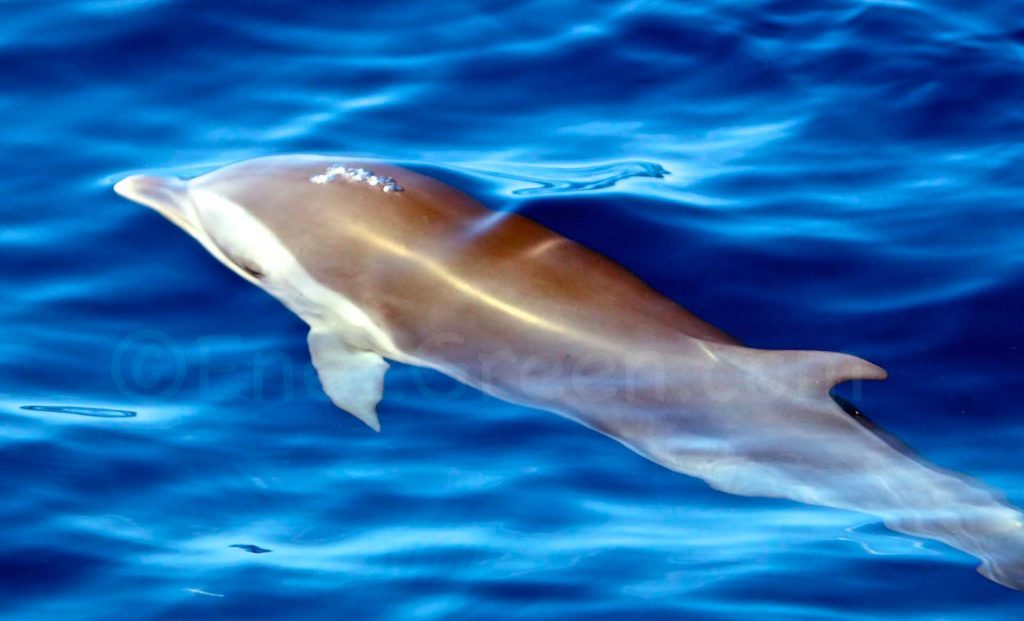Patrick Ledoux, the skipper who whispers to dolphins
During this outing at sea taking you to the discovery of the biodiversity, you will have the chance of meeting a true man of the sea. He has held a love for the sea since a very young age. After being a skipper aboard the first leisure crafts to come to the Caribbean in the 1980s, he turned to fishing. The behaviour of cetaceans seldom holds any secret for this nature lover. There is a good chance that if you ask him, he will tell you about the story of a dolphin named Fiango with which he has been friends for years. You will then understand the origins of his boat’s name.
A unique experience of cetaceans’ behaviors observations
Patrick will explain to you how the dolphins manage to avoid the lures used by fishermen, unlike many species of fish, for example by grabbing a hook by the shaft and then stealing the bait at its end. They also know about the traps used by fishermen and take the resources that are necessary to their survival before the latter come to remove the traps. The skipper will also provide you with information on the way of life and behaviour of these groups which can reach up to hundreds of specimens. And also about how they choose their nursery zones, how the females protect their offspring, how subgroups are formed in the evening to go hunting in other zones and how they use the tide currents to move around.
The dolphins come playing around his boat in numbers and Patrick takes care, when the weather conditions permit, to use his sail to avoid making noise. Dolphins are social animals and you can often see them jumping out of the water at the boat’s stem.
Exceptional encounters in the Caribbean Sea
The main species of dolphins that you will be able to observe in this part of the Caribbean Sea is the Pantropical spotted dolphin (Stenella attenuata). They always move around in groups, their rostrum is party white and their grey back is speckled with black dots. The behaviours that you can witness at the surface of the water clearly show that they live in a organised manner. They are curious and playful animals that will most certainly put on a show for you.
Patrick shows respect for the group and avoids harassing the dolphins by rushing on those that appear at the surface of the water. He goes his way and it’s the dolphins that come to socialise with him. He also spontaneously observes the code of conduct in the presence of cetaceans established by the International Whaling Commission (IWC), an international organization created at the end of World War II to regulate the whaling.
As from March, Patrick organises outings by the day or over several days. You will then venture into the deeper waters of the Caribbean Sea to get the chance of crossing the path of a whale or a group of sperm whales. With a little luck, you will be able to watch a group of cetaceans socialising at the surface of the water. The encounter can then last for hours.




